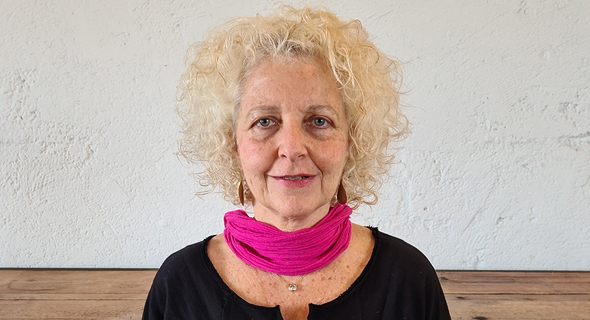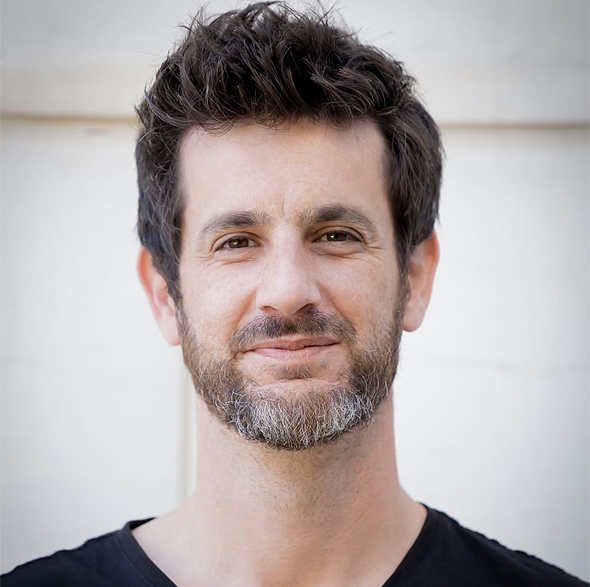Dr. Iris Ginzburg joins Willa to take empty-nesters shared-living to the next level
Tel Aviv University innovation expert to put theories on community into practice with the demographic that is set to dominate the 21st century
20:2520.04.21
“Joining Willa offered me the chance to walk my talk. As the head of the MBA program in Technology, Innovation and Entrepreneurship at Tel Aviv University, I always tell my students that success is about practicing theory,” Dr. Iris Ginzburg said about her decision to join the startup that is introducing a novel shared-living solution for people aged 55-75. “I'm so happy to get the opportunity to be part of those who build the new world for midlifers. We all know that life expansion and wellness offer people in their fifties, sixties, and seventies, the chance to enjoy life and be very active. Sadly, in today's world, they don't get enough opportunities to do that. Willa is all about creating meaningful communities for them in physical co-living spaces.”
 Dr. Iris Ginzburg. Photo: Willa Willa, which was founded in 2019, is set to open its first building in
the heart of Porto at the beginning of 2021. The 3,300 square meter building will house 40 fully furnished luxury apartments, with a third of its space allocated to shared and commercial purposes, including recreational and educational facilities, a health club, a wellness center, some office space with computers and audio/video recording equipment, and shared gardens, all of which will also welcome the broader local community. One of the goals of the shared spaces is to ensure age-diversity, which is another element that Willa considers a key part of its wider community goals.
Dr. Iris Ginzburg. Photo: Willa Willa, which was founded in 2019, is set to open its first building in
the heart of Porto at the beginning of 2021. The 3,300 square meter building will house 40 fully furnished luxury apartments, with a third of its space allocated to shared and commercial purposes, including recreational and educational facilities, a health club, a wellness center, some office space with computers and audio/video recording equipment, and shared gardens, all of which will also welcome the broader local community. One of the goals of the shared spaces is to ensure age-diversity, which is another element that Willa considers a key part of its wider community goals.
 Willa founder and CEO Asaf Engel. Photo: Efrat Mazor “People who think of co-living solutions as being most suitable for young adults are ignoring what may be the most significant demographic of the next 50 years,” asserts Engel, who founded Willa after identifying the untapped potential of providing services for what Willa calls the W-Generation, where the W stands for wisdom. “They may be nearly invisible when it comes to marketing campaigns and branding efforts, but in terms of purchasing power and relevance, they are a rising force. We will see a major change on that front as the world catches on that demographics and economics are shifting in their favor. Ignore them at your peril.”
Willa founder and CEO Asaf Engel. Photo: Efrat Mazor “People who think of co-living solutions as being most suitable for young adults are ignoring what may be the most significant demographic of the next 50 years,” asserts Engel, who founded Willa after identifying the untapped potential of providing services for what Willa calls the W-Generation, where the W stands for wisdom. “They may be nearly invisible when it comes to marketing campaigns and branding efforts, but in terms of purchasing power and relevance, they are a rising force. We will see a major change on that front as the world catches on that demographics and economics are shifting in their favor. Ignore them at your peril.”
“Communities” is the keyword for both Ginzburg and Willa as a whole. “Many of the existing coworking and coliving spaces assumed that putting people together in one space is enough. Reality proves that this is not the case. In Willa we apply deep academic knowledge and practical insights to our community creation process,” Ginzburg, who was the founder of IBM's Global Innovation Management Practice and now serves as Willa’s COO and Community Innovation Leader, said in an interview with CTech.
 Dr. Iris Ginzburg. Photo: Willa
Dr. Iris Ginzburg. Photo: Willa “When I first heard about Willa, I was already convinced that shared living was a wonderful solution for empty-nesters. I had done research on the topic and it made sense from a well-being perspective, from a social perspective, from a financial perspective, I was basically telling people how I think they should sell their house and move to a community when one of them told me about Willa and what it was doing,” Ginzburg recalled. “The more I heard about it, the better it sounded, I quickly met with Asaf (Engel, Willa’s CEO and founder) and the wow factor just increased. I decided to join immediately.”
Ginzburg, who received her Ph.D. in Physics and later her Master of Science from the Sloan School of Management at MIT, has been fascinated by the topic of communities for several years now, teaching courses on it and serving on the board of the Israel Association of Community Centers, so much so that she said she regretted never getting a degree in sociology. “There is an abundance of sociological and economic research on communities and nowadays with the explosion of online communities there is a lot of interest in that as well, but what is lacking and what interests me, in particular, is the combination of the two. Willa lets me put all my interest and years of academic research to work in a very practical way.”
“One of the challenges in Porto will be to ensure that our complex of 40 apartments can be well integrated into the existing local community so that it can have a positive impact both on the people there and our residents,” Ginzburg said. “Our residents, people in their 50s, 60s, and 70s are often overlooked, but they are a demographic that has a lot to contribute to any community that’s lucky enough to have them. They have the wisdom and experience of age, the free time afforded them by their retirement or semi-retirement, and disposable income to spare. They have so much to contribute. A former executive can offer lectures at the local university, a retired entrepreneur can mentor young business owners, parents whose children have moved out can volunteer at a local childcare or elderly care center. It’s a win-win. For the communities, it’s a major asset and for the residents, it offers a meaningful activity that keeps them busy, engaged, and vital. The possibilities are all there, but like any community it needs someone steering the wheel, and that’s what Willa can do.”
 Willa founder and CEO Asaf Engel. Photo: Efrat Mazor
Willa founder and CEO Asaf Engel. Photo: Efrat Mazor According to the World Health Organization by 2050, 22% of the predicted nine billion people living on Earth will be 60 or older, compared to just 12% in 2015. After Porto, Willa is set to open a co-living complex in Barcelona in the second half of 2021 and at least two more by the end of 2022 in London and Berlin. After that, they predict to roughly double the number of buildings every year, reaching 180 buildings around the world by 2030.
“At that stage the Willa community will be truly global, opening a lot of new opportunities,” said Ginzburg. “Clients will be able to move from one city to another and still be part of the same community, whether they are in Paris or New York.”
Ginzburg notes that the Covid-19 pandemic has only served to accelerate the community-building processes. “Even though people were cooped in at home for months at a time, it only strengthened their desire for community and they found it, first online, but also in their offline lives. We were all given a stark glimpse into the larger and more persistent pandemic that is loneliness, for which Willa can be a potential cure. I believe that it's possible to unleash the energy and motivation of midlifers to the benefit of their generation as well as the benefit of us all.”
“It is for this precise reason that we brought Iris on board. She brings with her the deep academic and research background and the expertise and experience when it comes to innovation that such an ambitious goal demands,” Engel said. “It is due to our passion for and dedication to our residents that we brought in one of the world’s foremost experts. We don’t want to just create an app that may or may not be used by our community members, we want our service to be developed according to the users actual needs and interests that ensures it is truly suited to the intended age group. We are trying something daring and new and we want the best people accompanying us to ensure that they, and we, succeed together.”



